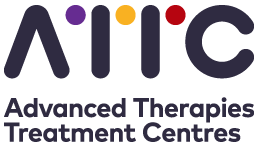
Case Studies
Development of an Institutional Readiness Toolkit
The Challenge
Successful adoption of Advanced Therapies (ATs) requires NHS institutions to adapt their infrastructure, processes and practices at an institutional level. Institutional Readiness (IR) has been highlighted as a means of assessing the capacity of an institution to adopt new technologies. The concept of IR is well recognised and examines the challenges of implementing regenerative medicine (RM) therapies within hospitals and clinics. Current pathways within existing healthcare systems present hindrances and also afford opportunities for the implementation of new RM technologies1.
The Solution
The Northern Alliance Advanced Therapies Treatment Centre (NA-ATTC) has used the concept of IR to audit progress within partner NHS trusts and boards towards well-managed advanced therapy trials and clinical adoption. The toolkit that NA-ATTC has developed assesses the IR of NA-ATTC’s four main clinical sites for the AT medicine classes; gene therapies, somatic-cell therapies and tissue-engineered products. The toolkit, comprising a questionnaire and supporting documentation, identifies the gaps that hospitals must address in order to be ready to deliver these new medicines to patients at scale. Once fully validated by NA-ATTC with the help of the two other ATTCs, the toolkit will be available to other NHS institutions to enable them to assess their IR for ATs.
The Results
An initial questionnaire was created and deployed by NA-ATTC’s NHS partners in Newcastle, Leeds, Glasgow and Edinburgh to assess their IR at the beginning and midpoint of the project (March 2018 and August 2019 respectively). The data gathered demonstrates an improvement in IR across all NHS sites and AT classes assessed at these two dates 17 months apart. Particular areas for improvement were identified and this resulted in recommendations both at site level and also nationally for the NHS.
1 Gardner J, Webster A, Barry J. Anticipating the clinical adoption of regenerative medicine: building institutional readiness in the UK. Regenerative Medicine, 2018 Jan;13(1):29-39.
The IR Questionnaire has been further validated and expanded since Aug 2019. It now includes core capacities, such as appropriate infrastructure, logistics around coordination of ATs and capacity and infrastructure for data collection to monitor outcomes. It will be used to evaluate the overall improvement in IR achieved by the ATTC’s clinical sites by the end of the three-year project.
Figure 1: The shift in IR in two AT exemplars across all NA-ATTC clinical sites (gene therapy and somatic cell therapy):
Each site self-assessed by answering the 24 questions in the questionnaire as either green, amber and red, the criteria for which are set out in the key.


![]()
Exploiting the benefits
The IR assessment within the NA-ATTC has highlighted areas of current adoption capacity and areas for improvement to allow successful adoption of ATs at a local level. Learning from this work has been shared across the Advanced Therapy Treatment Centre Network. Once validated, the IR Toolkit will be available to all NHS institutions in the UK that wish to self-assess their IR for ATs.
